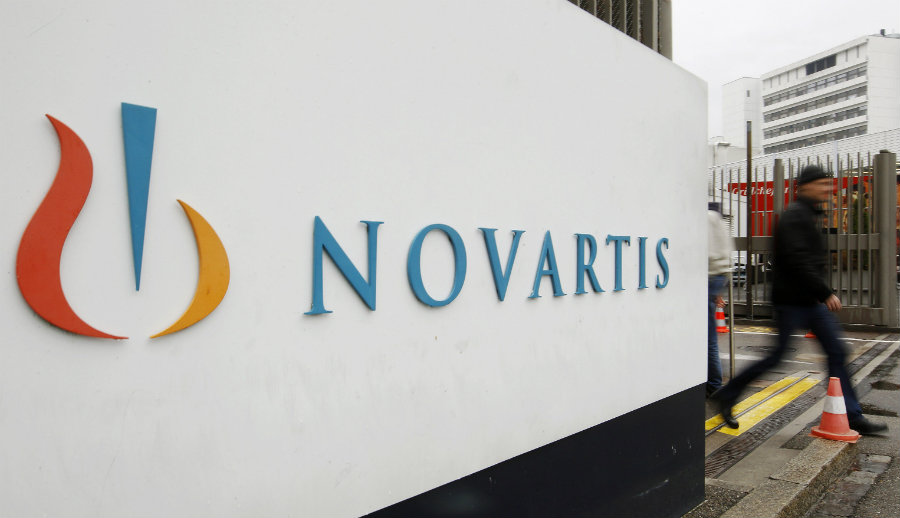A new kind of cancer treatment received U.S. regulatory approval on Wednesday. The treatment uses genetically edited cells from a patient’s immune system to attack cancer and will be used to treat children with the most common type of leukemia.
A Food and Drug Administration (FDA) advisory committee voted unanimously to recommend approval of the new “living drug,” which is manufactured by Novartis AG’s, to treating B-cell acute lymphoblastic leukemia in children or young adults who’ve relapsed or failed chemotherapy.

The FDA is expected to give clearance for the drug after the committee’s decision, even though the agency does not have to follow the committee’s suggestions.
FDA advisory committee gave the green light to Novartis’ T-cell ‘living drug’
The living drug already saved the life of Austin Schuetz, a 9-year-old boy from Wisconsin, who was treated with the novelty therapy in 2013. Schuetz was one of the subjects of a clinical trial after leukemia cells were found in his brain only two months after he’d received a bone marrow transplant. He was 6 when doctors tried the T-cells on him, and his mother said he suffered severe headaches and fever afterward. However, he shows no signs of leukemia or any other kind of cancer today.
“We knew it was risky… but it was the only option for us,” said his mother, Kim Schuetz, according to Reuters.
The Novartis leukemia drug, known as chimeric antigen receptor T-cell or CAR-T, involves taking immune system cells from a patient’s body, modifying its genes, and then placing the modified T-cells back into the patient. The modified T-cells are “upgraded” by scientists so they can spot and kill cancer cells more efficiently.

The new treatment is one of the biggest breakthroughs to fight cancer that the world has seen in decades. While it has generated much enthusiasm among scientists and doctors, some people are concerned about its safety over time and its cost. Despite that, the T-cell drug received an astounding 10-0 vote in FDA’s advisory committee.
“The majority of calls we are getting are from patients looking for immunotherapies – particularly CAR-T therapies,” noted Dr. Gwen Nichols, chief medical officer at the Leukemia and Lymphoma Society.
She told Reuters that “the word is out there” that this new treatment is different from traditional chemotherapy.
Patients with most common type of leukemia only have 16 to 30 percent chance of survival
Dr. Nichols explained that between 80 and 90 percent of children with B-cell acute lymphoblastic leukemia are cured with chemotherapy or by bone marrow transplant, but there are practically no options left for remaining patients. If someone’s child is in that 10 to 20 percent, they’ll be desperate, she said. However, she warned that it’s too early to tell whether CAR-Ts treatment offers lasting remissions for patients.
Immunotherapy drugs have been widely researched and tested in recent years, as these drugs have shown promising results for a broad range of cancers by unblocking the body’s natural immune system.
In fact, Novartis is the latest drug maker to release an immunotherapy drug to treat cancer therapy, as companies like Merck & Co Inc. and Bristol-Myers Squibb Co. have been selling for years what are known as “checkpoint inhibitors,” which fight cancer by removing a brake on a patient’s immune system.
In the clinical trial, 79 percent of patients who received the Novartis CAR-T cell immunotherapy were alive a year later. Over 6,000 people are diagnosed with B-cell acute lymphoblastic leukemia in the United States every year, and around 60 percent are children, according to the American Cancer Society. Children or young adults with that type of leukemia only have a 16 to 30 percent chance of survival.
FDA will announce whether it approves the CAR-T treatment in September
However, there is a downfall to the latest leukemia treatment. CAR-Ts can pose serious health risks, including a potentially life-threatening inflammatory condition. Schuetz, who is one of the few CAR-T patients that has achieved multi-year remission of his cancer, requires infusions of immunoglobulin twice a week to replace B-cells killed by the genetically engineered T-cells.
The treatment’s cost is also to be considered by anyone looking at CAR-T therapy. If the FDA ultimately approves the drug, CAR-T therapies could cost up to $500,000 and would generate billions of dollars for Novartis. Health insurers have been implementing more restrictions to patient access lately, while costs of cancer drugs keep rising.
“While CAR-T is a promising new type of immunotherapy, it is not commercially available and we have yet to complete our evaluation,” T.J. Crawford, a spokesman for health insurer Aetna Inc., said in a statement, according to Reuters.
The FDA is expected to announce its decision on Novartis’ CAR-T treatment by late September. Other companies with similar CART-T immunotherapy drugs are also waiting for FDA’s approval, including Kite Pharma, Juno Therapeutics, and Bluebird bio.
Source: Reuters
